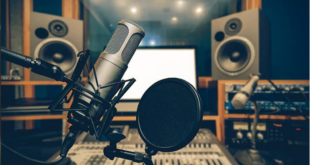Studying can be a daunting and exhausting task if you don’t have a good plan set in motion. If you form a proper agenda and consider different techniques to aid you in your work, time is more likely to fly by. Highlighters, music, sticky notes, regular breaks and utilizing helpful resources such as tutorme.com are sometimes the last things you’d think about, but depending on which type of learner you are, you may want to consider the following:
1. Enhance And Utilize Your Natural Ways Of Learning

It can be easy to assume that there’s one learning type that suits everyone, but this isn’t the case. Often, the way we learn and retain information varies from person to person drastically. It’s important to determine which learning style suits you best and to use this to your advantage, rather than try to fit into a style that holds no benefits for your productivity or confidence.
Many of the methods we use and naturally gravitate towards can fall under the following categories:
• Visual
• Auditory
• Kinesthetic
• Intrapersonal or Read/Write
Visual
If you are a visual learner, have fun acquiring sticky notes, highlighters and colored pens, and create as many visual aids as you’d like to help you in your sessions..
Some of these aids could include:
• Graphs
• Posters
• Flashcards
• Diagrams
• Drawings
• Symbols
• Maps
Even dipping into Kinesthetic methods (hands-on learning), could help you, such as creating tactile models. Another popular method is using a whiteboard to scribble on; whether you’re taking notes or drawing diagrams, sometimes the size of the canvas can help you to retain information better.
Auditory
If you absorb information best through listening to lectures, watching videos and hearing yourself speak aloud, take advantage of that.
Some techniques you could try include:
• Mnemonic devices
• Recording yourself
• Listening to lectures, rather than reading lecture notes.
• Out loud repetition
• Discussion sessions
• Listening to music whilst you work
Kinesthetic
If you’re a hands-on person, who retains more information when physically experiencing a relevant activity, then you have the opportunity to get creative.
Some options include:
• Acting out or physically representing your subject
o For example, if you’re learning about the different kinds of triangles, instead of simply drawing them down in a notebook, you could go outside and use yourself and another object to create these angles.
• Vary your position when working
o Acquire a sit/stand desk if you wish to stand for certain periods of time instead of sitting.
• Incorporate exercise into your learning
• Use tactile materials like clay, building blocks etc.
Intrapersonal or Read/Write
If you learn best by reading and writing, and appreciate working alone rather than in a group, then you’ll probably benefit the most from writing as many notes as possible.
The following may also aid you:
• Write check-lists
• Acquire relevant books
• Journal and reflect
• Ask for lecture notes
• Use flashcards
• Use a dictionary
2. Create A Good Study Environment

Creating a comfortable environment to work in is sometimes vital in determining whether you’ll be productive or not. If you’re not able to control or alter your circumstances, then you should consider a few smaller hacks.
These could include:
• Using headphones to drown out any unnecessary noise
• Sitting farther or closer to people depending on what you prefer
• Ensuring you have snacks and water
If you’re studying at home, you’ll have a little more flexibility in creating your perfect work space. The more comfortable you are, the more mentally clear and motivated you’ll become.
Some ideas to consider include:
• Putting on music or a movie in the background if you aren’t fond of silence
• Choosing to study outside
• Choosing to study on your couch, bed, or somewhere else comfortable
• Lighting candles
• Decorating your space to ensure maximum comfort and aesthetic
3. Time Management

It should come as no surprise that managing your time is one of the most important factors when creating a proper study plan. Without setting guidelines and timeframes for yourself to stick to (whether specific or loose) it’s easy to fall out of rhythm, get carried away with other tasks or achieve much less than you hoped.
4. Eat And Drink

Your mind needs sustenance, especially when attempting to retain new information. It can be easy to forget to eat when you’re stressed out or too focused, but making sure to eat and drink water (even in small amounts), really helps your mental clarity and brain function.
5. Schedule Breaks

Regular breaks are just as important as the study. As mentioned above, your brain needs fuel and if you’re spreading yourself too thinly and working for hours on end without a rest, you’ll most likely feel fatigued and lose focus.
Short breaks could consist of any of the following:
• Going for a short walk around the block
• Taking a power nap
• Grabbing something to eat
• Calling a friend
• Taking a shower
6. Reward Yourself

If you just completed a massive essay or read a few more chapters than anticipated, be sure to treat yourself. Whether that means going to the bakery and grabbing your favorite dessert, planning an exciting event, or finishing up a little earlier and watching a good film; it is key to acknowledge your efforts and reward yourself accordingly.
In Conclusion
Creating a study plan can be difficult if you don’t know where to start, but if you’re creative with your time, space and learning methods, you’ll be more inclined to retain and absorb information. Visual, Auditory, Kinesthetic and Intrapersonal are the various learning styles, one of which usually suits you better than the others. If so, use them to your advantage.
Once you’ve determined your learning style, it’s time to create the perfect study space. From there, you can utilize any other hacks to further your productivity, whether it’s listening to music, lighting candles, snacking or exercise.
 Imagup General Magazine 2024
Imagup General Magazine 2024



